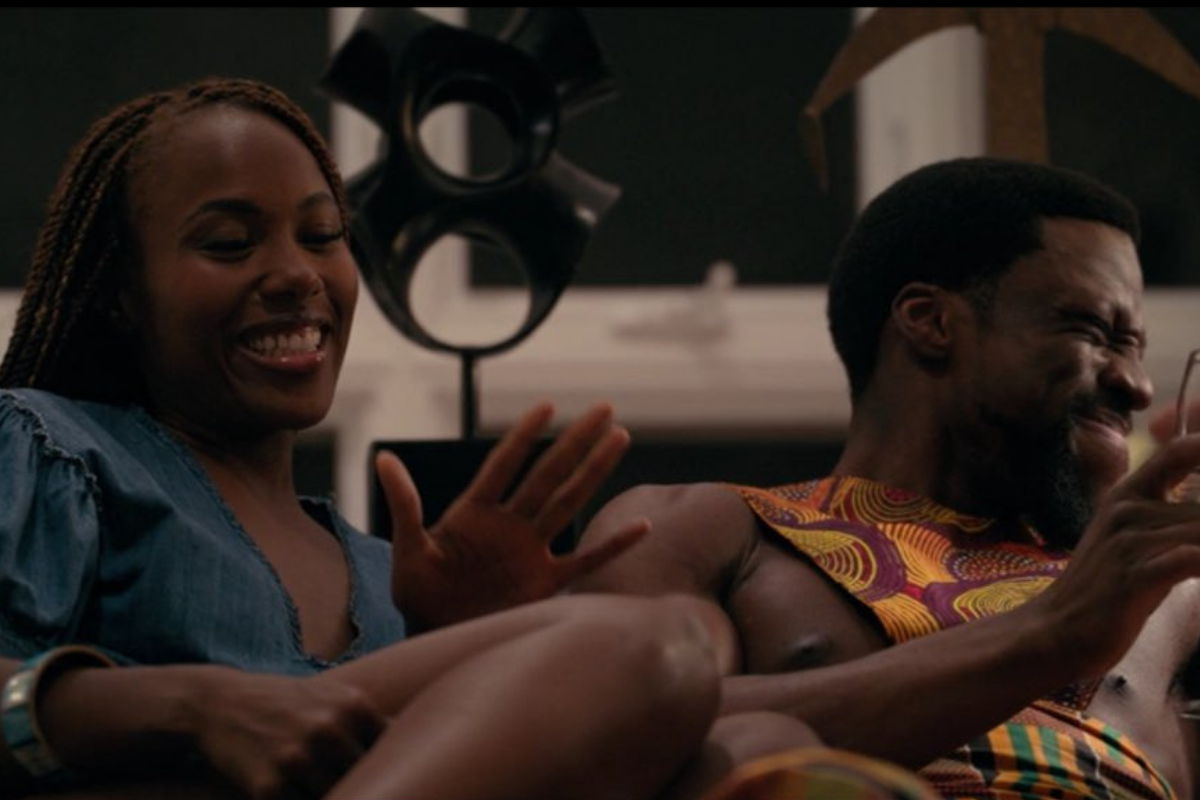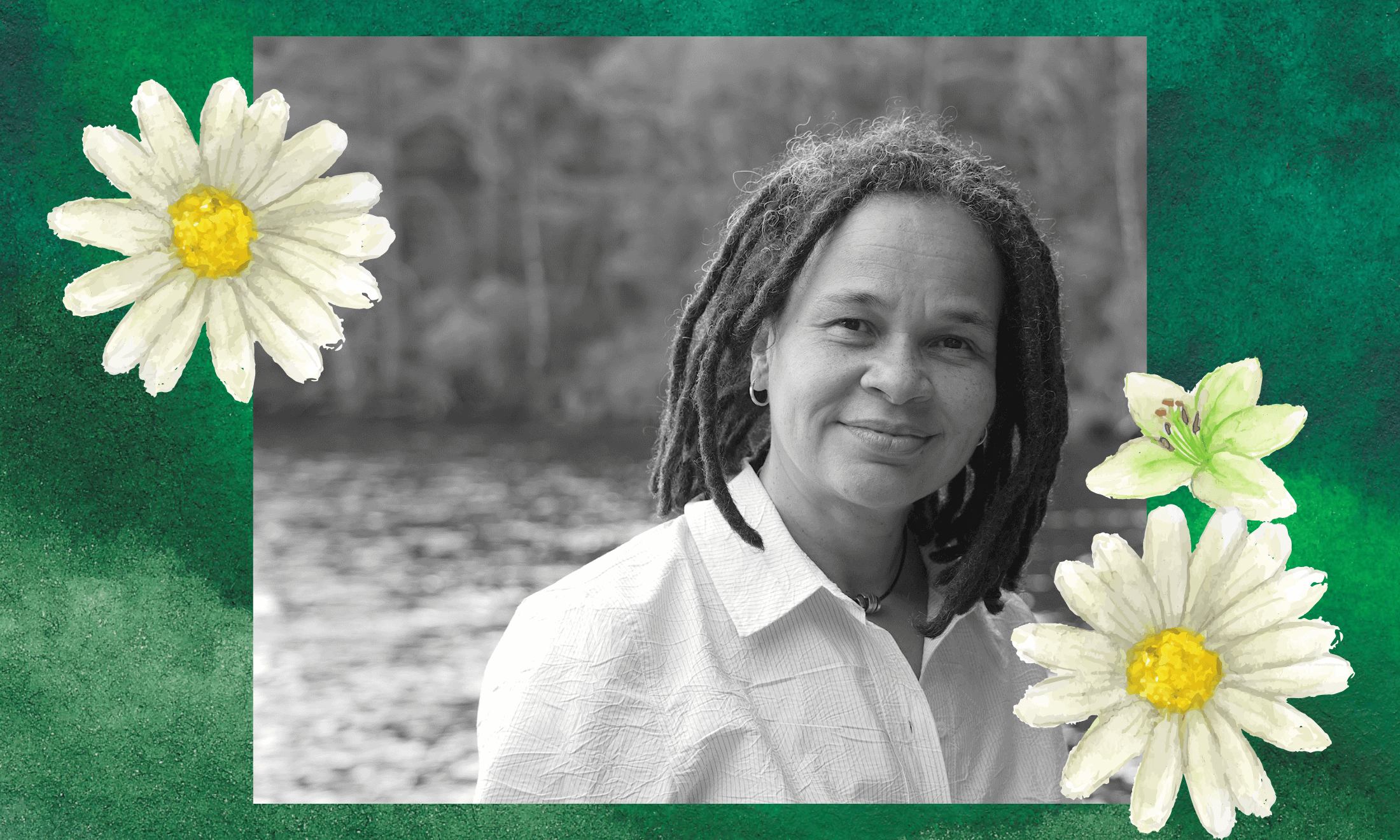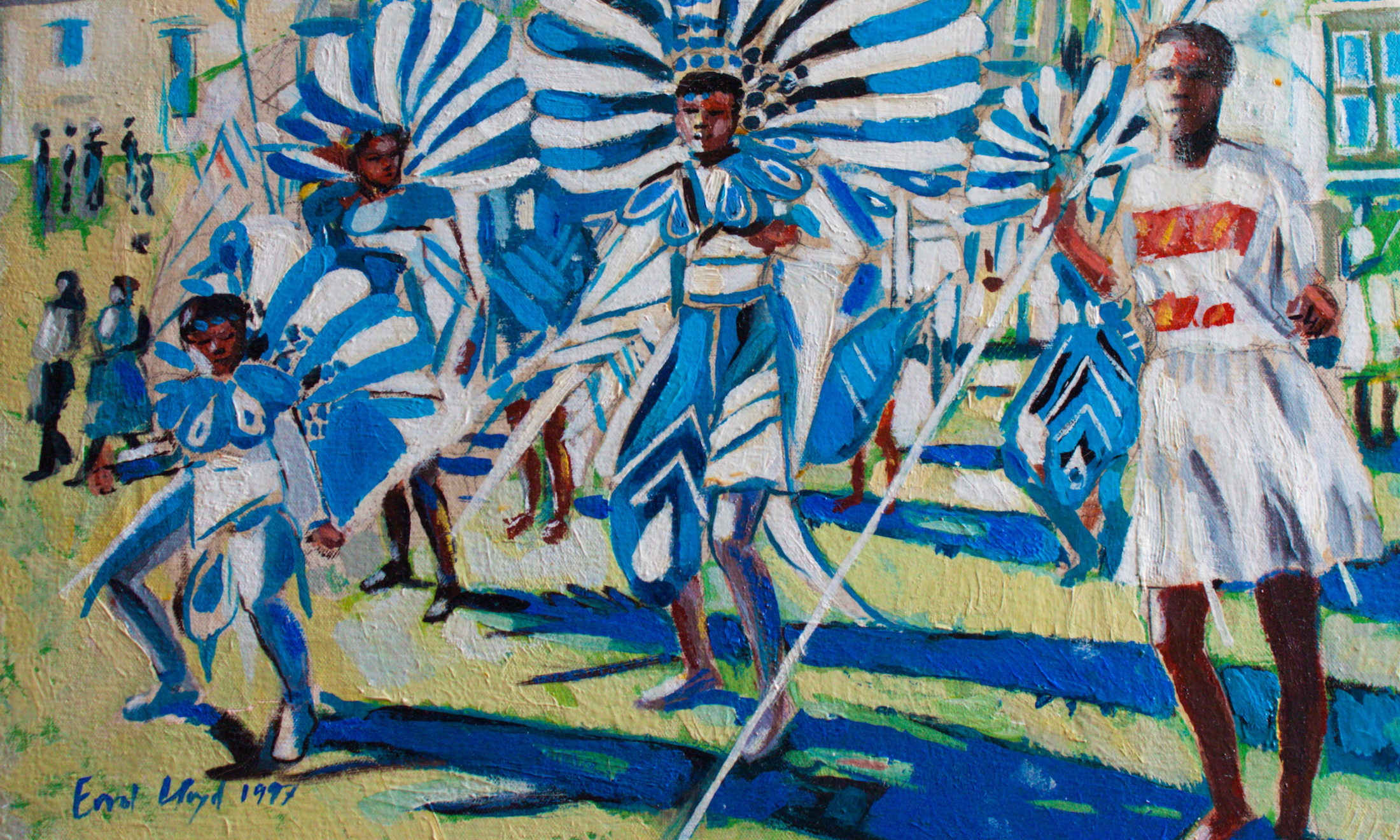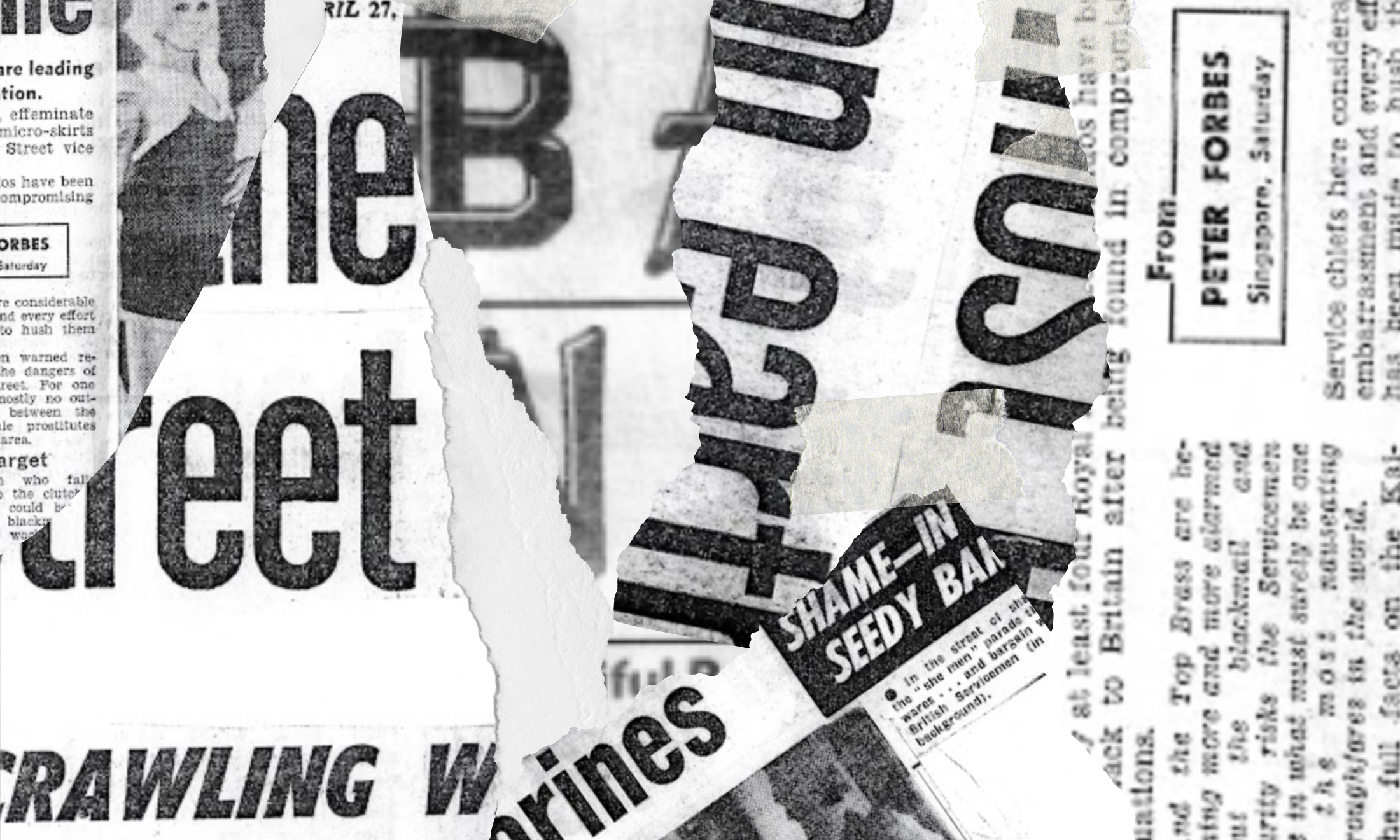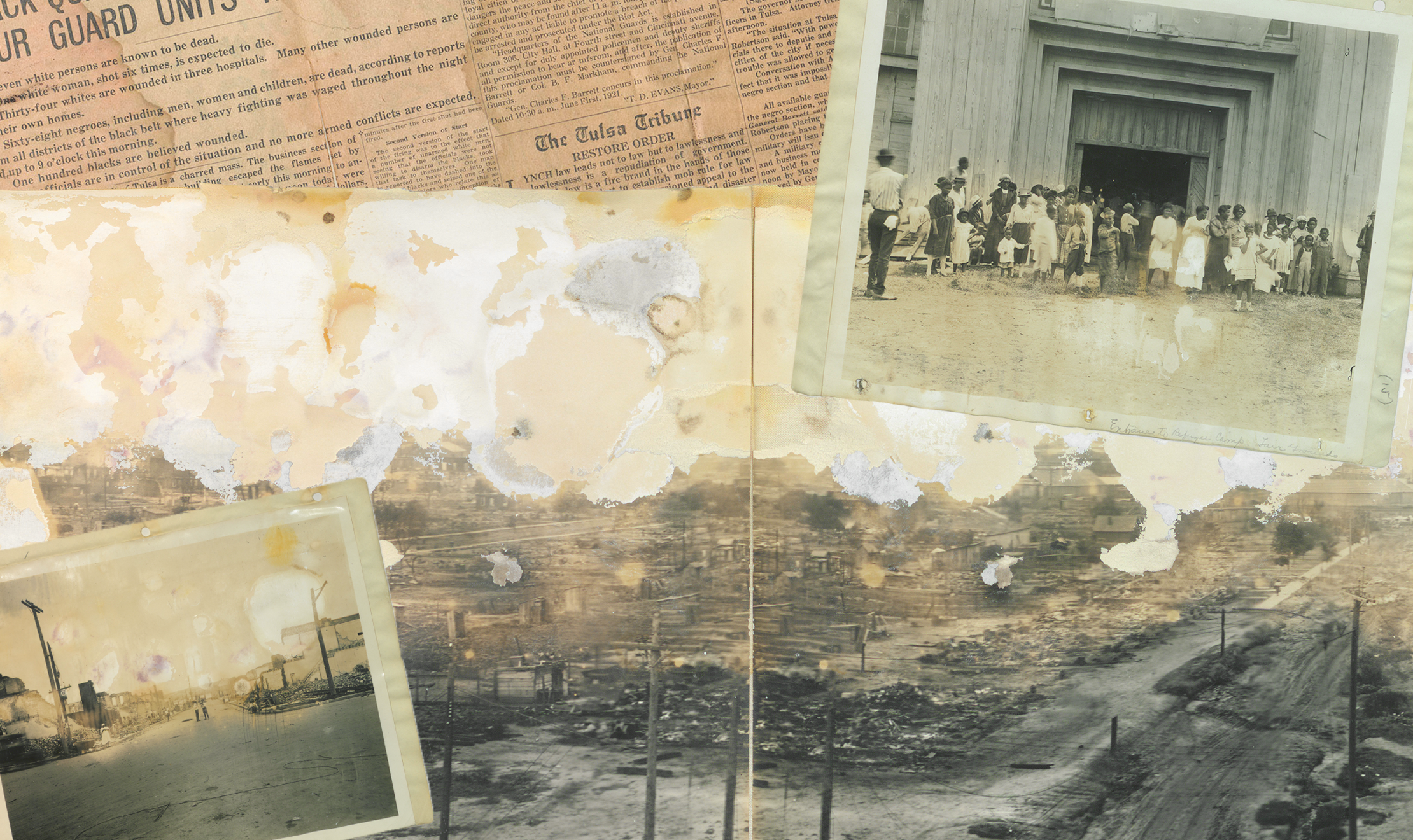Amid a shifting understanding of Black identities, what does Kwanzaa mean in 2021?
As political contexts change, so does the meaning of a celebration with a vibrant, yet complex, history.
Jordan Taliha McDonald
26 Dec 2021
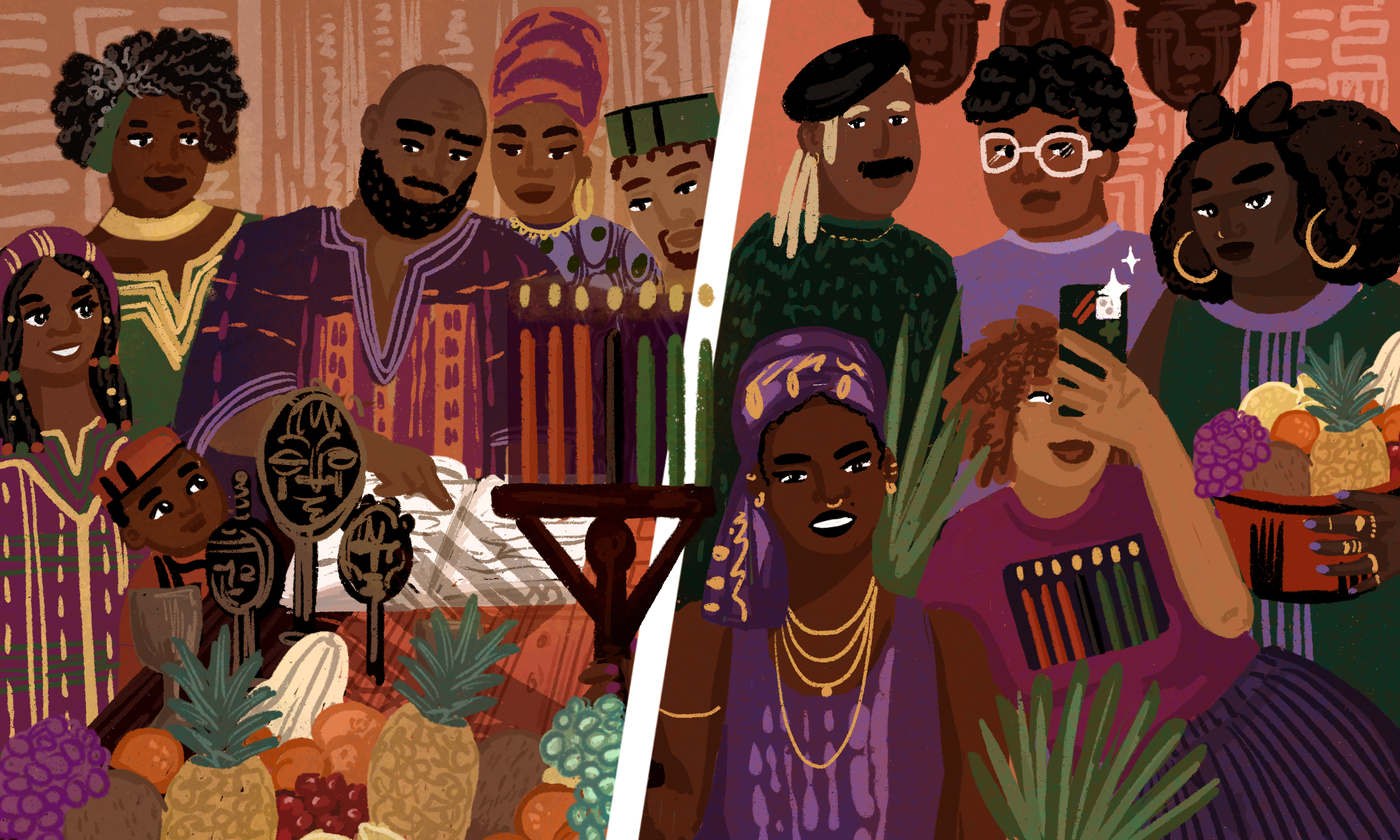
Tinuke Fagborun
My mother – a Black woman who came of age in the 1980s and 1990s – was adamant as a parent that my brother and I celebrate Kwanzaa. The holiday was founded in 1966 by Maulana Ron Karenga (neé Ron Everrett), an activist and academic rooted in the disciplines of Africana studies and political science, and remains deeply tied to its founder’s political philosophy. Kwanzaa was designed for African-Americans, to honour the ‘African’ part of their heritage.
Wrapped up in the weeklong festivities is a vibrant heritage – but also more complex political undertones of Black nationalist and separatist ideology in the U.S. and throughout the African diaspora. Since Kwanzaa’s founding, the holiday has found fertile ground outside of the US; and has been adopted by the African diaspora in places such as Canada, the Caribbean, and the UK. And as mainstream understanding of the Black identity chops and changes, so too does Kwanzaa experience concurrent surges and declines in popularity.
A holiday born in California, and borne out of the Black American Pan-Africanist traditions which took hold in the late 1960s and early 1970s, Kwanzaa emerged at a time when political organising shifted from the pacifism of the early 1960s civil rights era and transformed into Black Power, or what Karenga referred to as the “Black Freedom Movement.” In the wake of 1965 Watts Rebellion – a series of uprisings in Watts, Los Angeles in response to ongoing police brutality – Karenga conceived of Kwanzaa at a moment marked by the organising of militant Black resistance, the development of Black studies in the academy, and increased scrutiny toward state interference in Black organising efforts.
“Wrapped up in the weeklong festivities is a vibrant heritage – but also more complex political undertones of Black nationalist and separatist ideology in the U.S. and throughout the African diaspora”
In the words of historian Elizabeth Pleck in her article “Kwanzaa: The Making of a Black Nationalist Tradition, 1966-1990,” the holiday of Kwanzaa, which came out of this political context, possessed an “oppositional character” as it strove to siphon the attitudes of a movement into a celebration practice.
As a concept, Karenga’s imagination of Kwanzaa draws much of its linguistic might from Kiswahili (referred to as ‘Swahili’ in the English language). Informed by the philosophical offerings of the Bantu language, Karenga – who himself took on the Swahili names ‘Maulana’ and ‘Karenga’, which translate respectively to to “master teacher” and “keeper of tradition” – developed Kwanzaa as a holiday organised according to ‘seven pillars’, known as ‘Nguzo Saba’.
Given these origins, it is central to the holiday’s conception that it serves as a means of cultivating community through the celebration of culture and the promotion of this distinct set of principles. These pillars, observed from 26 December until 1 January, are: (1) Umoja for Unity, (2) Kujichagulia for Self-Determination, (3) Ujima for Collective Work and Responsibility, (4) Ujamaa for Cooperative Economics, (5) Nia for Purpose, (6) Kuumba for Creativity, and (7) Imani for Faith.
In an effort to reject Christmas’s supposed efforts to “reduce […] children to mere recipients of gifts,” Karenga proposed these principles as the “core and consciousness” of a family-focused political project which required the full engagement of young and old. “The matrix and minimum set of values African Americans need to rescue and reconstruct their lives in their own image and build and sustain an Afrocentric family,” Karenga wrote in Kwanzaa: A Celebration of Family, Community, and Culture.
As a child in the early 2000s, I was instructed to meditate on these pillars over the course of the seven days so as to develop a sense of self and celebration which was bound up in notions of community and Black pride. Having grown up in Seat Pleasant, Maryland, a predominantly Black city on the outskirts of Washington, D.C., it was not uncommon during the holidays to hear a neighbour or a mailman shout “Habari Gani,” to my mother or myself and for us to respond back knowingly with the principle for the day. “Ujima,” we would’ve shouted back on 28 December.
“As a child, I was instructed to meditate on these pillars over the course of the seven days so as to develop a sense of self and celebration which was bound up in notions of community and Black pride”
Back then, my favourite of these principles was Kuumba, the day dedicated to creativity, during which my mother would often encourage us to write or draw or otherwise participate in an inventive endeavour. As I came to learn, creativity was integral to the holiday’s conception of community as a project of restoration and political resistance forged through innovation and intention.
In Kwanzaa: The Making of a Black Nationalist Tradition, historian Keith Mayes explores the creative development of Kwanzaa as a holiday founded and reinforced by “Black power cultural workers” who were taking up a longstanding crusade against “Black participation in American holidays,” dating back to Fredrick Douglass’ famous 1852 speech, “What, to the Slave, is the Fourth of July?”.
For Karenga, as a philosopher of “kawaida theory” – a philosophy which he defined in a 2002 interview with Larry Crowe as a constant “dialogue with African culture, asking it questions and seeking from it, answers to the fundamental issues of human life” – Kwanzaa is the answer to the questions which informed and consumed the Black Freedom Movement: “How do you create a just and good society? What does it mean to be human? What is our moral obligation to each other? What is our rightful relationship with the environment?”
In the years that followed the founding of Kwanzaa, however, Karenga himself was met with scrutiny for his failure to model the moral and political imperatives his philosophy would presumably call for. In 1971, he was convicted of felony assault and false imprisonment in a case involving the torture of two female members of the US Organization, a Black nationalist group of which he was a founding member.
After serving four years in prison before his parole in 1975, Karenga’s work with the US Organization was largely supplanted. Between the disturbing details of his torture conviction, as well as what historian Scot Brown described as a “intense and bitter feud between US [Organization] and the Black Panther Party” that ultimately “degenerated into violent warfare in South California,” the reputation of the organisation floundered. All this, plus news of Karenga’s collusion with the LAPD’s Criminal Conspiracy Division to attack the BPP, throw the legacy of Kwanzaa’s founding into stark relief.
“In the years that followed the founding of Kwanzaa, however, Karenga himself was met with scrutiny for his failure to model the moral and political imperatives his philosophy would call for”
By the 1980s, following the dissolution of the Black Power movement as well as the deaths and incarcerations of numerous Black radicals, Kwanzaa, too, lost its revolutionary association. In time, the holiday became absorbed by the very corporate and institutional structures which swept its originary movement under the proverbial rug.
As Elizabeth Pleck attests, this cultural event which once sought to reconstitute Black identity in the post-civil rights era, later became more widely embraced in schools and in middle-class (or aspirationally middle-class) homes as a cultural celebration concerning family life rather than a festivity which might promote flirtations with Black militancy, a critical stance toward the police and other arms of the state, or an overall disidentification with mainstream (and white) American nationality. In time, the holiday has begun to mirror its founder’s capacity for collusion, its political origins minimised so as to secure its ongoing assimilation into American holiday consumerism.
Still, the holiday has retained its political significance for many. Following Trinadadian activist Kwame Ture’s death in 1998, “Kwanzaa celebrations in Trinidad and Tobago were dedicated to [Ture’s] memory and global contributions to the empowerment of Africans,” wrote West Indian scholar Jerome Teelucksingh in Ideology, Politics, and Radicalism of the Afro-Caribbean.
“For the millennial generation, who sit in black studies courses, who have so much more access to black history and black heritage there’s just not that kind of intensity around the holiday that we might have [seen] in the 1980s”
A 1997 survey led by Maritz Marketing found that “Kwanzaa is celebrated by one out of seven United States blacks.” Nonetheless, years later, it has become a common consensus that the practice of Kwanzaa has dramatically decreased amongst Black Americans in particular. Thus, the question of continued practice is one which concerns many.
In an interview for NPR, academic Mark Anthony Neal reflected on Kwanzaa’s decline and arrived at the question of the holiday’s varied generational appeal. “For the millennial generation now – you know, who sit in black studies courses, who have so much more access to black history and black heritage […] there’s just not that kind of intensity around the holiday that we might have [seen] in the 1980s, for instance, when I was in college and, you know, that was the only way – and for many of us – to be able to connect to some sort of sense of black heritage.”
On the matter of Kwanzaa’s future, Neal remained hopeful. “I’m sure there would be younger generations of black folks who will see some significance in Kwanzaa, even if it’s not practiced with the same intent that it might’ve been created in 1966,” he said.
Airing on December 7, 2001, the ‘Seven Days Of Kwanzaa’ episode of American animated Disney Channel television series The Proud Family, likely introduced an entirely new generation to the holiday. On the now, 20-year-old episode, the Prouds extend an dinner invitation to a homeless family on Christmas. Upon arrival, seven hours ahead of schedule, their guests, parents Angel Margaret (Vivica A. Fox) and Angel Joseph (Samuel L. Jackson) and their daughter Angel Stephanie (Raven-Symoné), proceed to shake up the Proud household’s holiday traditions as well as their often conservative, middle-class suburban outlook on community and culture.
Turning the evening on its head, these guests soon share with the Prouds that they don’t in fact celebrate Christmas, but rather a secular holiday which holds great cultural and historical significance to their family: Kwanzaa. As hijinks ensue, the three Angels proceed to occupy the Proud home for the length of seven days, turning a small gesture of Christmas kindness into a Kwanzaa crash course. Colourful, comedic, and produced for children, the episode set out to establish for the average Disney Channel viewer in the early 2000s the idea of Kwanzaa as a holiday which can easily be integrated into the end of year celebration procession of Hanukkah, Christmas, and New Year’s Eve.
As an adult born in the late 1990s, I was the target audience for this episode. Having grown up watching The Proud Family and celebrating Kwanzaa, I recognised parts of my own family in the Angel clan. Years later, my own relationship to Kwanzaa would be difficult to fit into an earnest episode of television. Today, you will not find a kinara – a candle holder with seven branches used for Kwanzaa festivities – or a set of symbolic red, green, and black candles in my apartment. I suspect the ones from my youth are stored somewhere in my childhood home collecting dust as I write this very sentence. Nonetheless, I have continued to send Kwanzaa gifts – which Karenga once suggested ought to consist of “a book and a heritage symbol” – to friends and family. And this is a contradiction I am comfortable with.
These days, given my greater understanding of the holiday and its founding, I find myself feeling more reflective than festive when Kwanzaa rolls around. Now, for those seven days, I ruminate on the rupture of radical imaginations and the creative instincts which once endeared me to its principles. If and when I light a candle, I name that flame for a freedom no nation can contain – a liberation that lingers for much longer than a holiday.
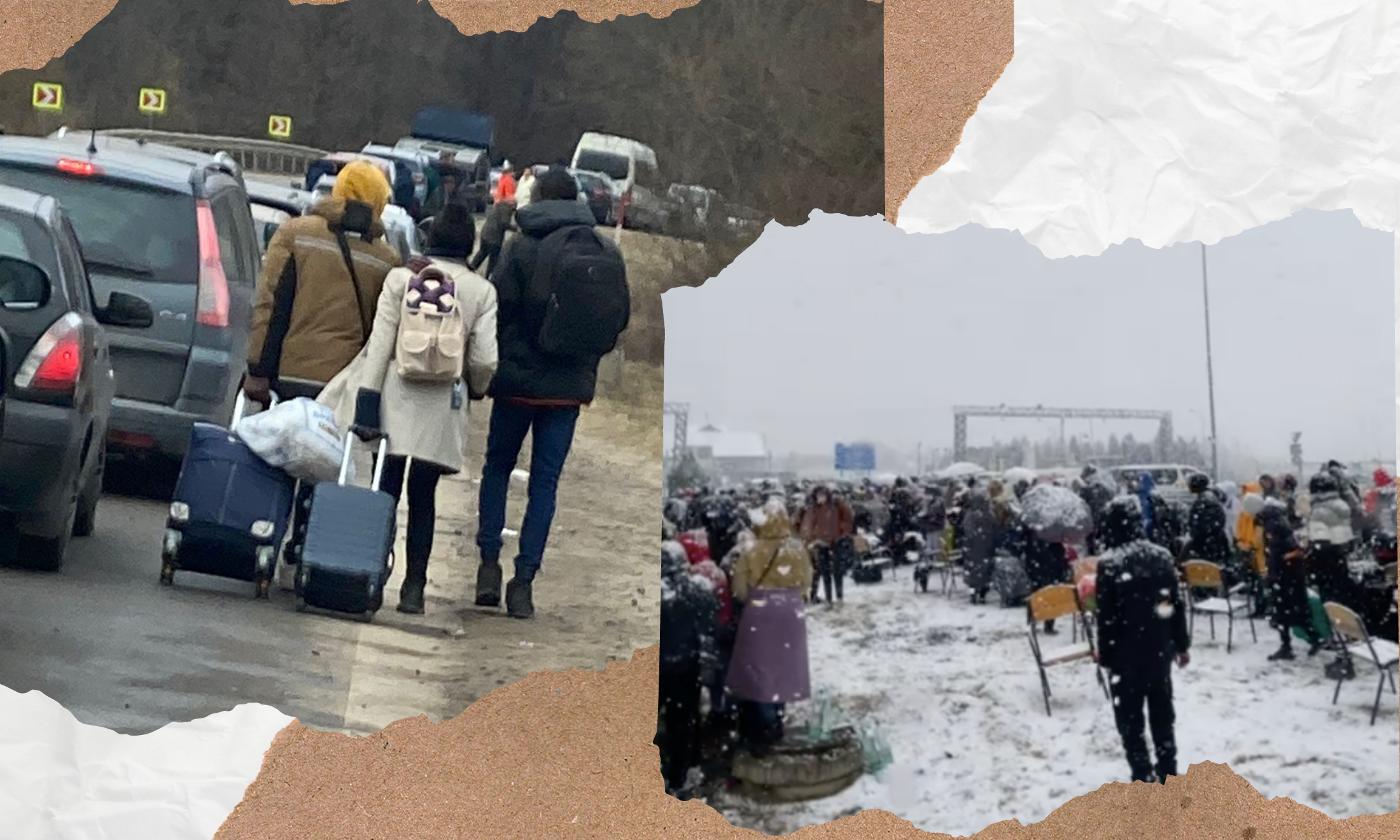
Nigerian students share their journey of fleeing war in Ukraine

Western diaspora, we need to check our privilege when returning home in a pandemic
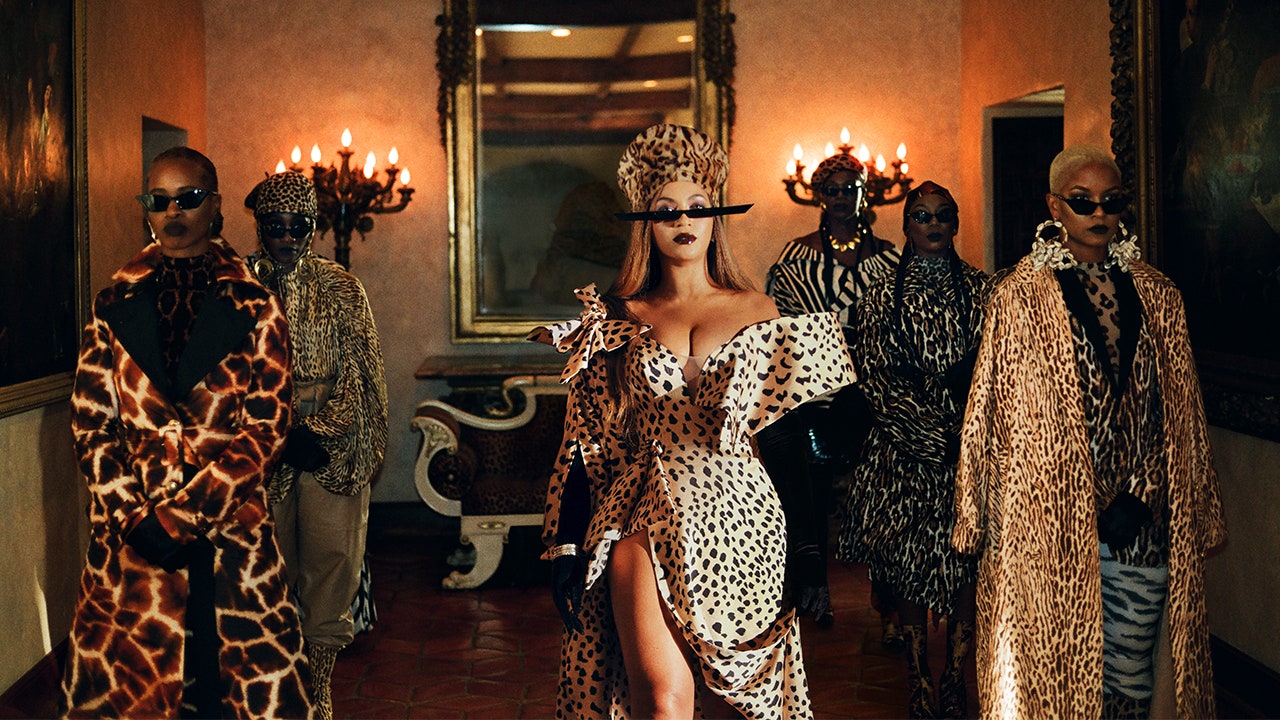
Coming to America and Modern Maasai: the hidden references of Beyoncé’s Black is King
